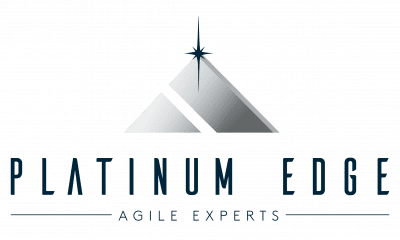by Jason Gardner (Ed.)
Do you want to create an effective Scrum team that produces successful results? If so, it’s essential to understand the habits and practices of top-performing teams. But where do you start when building the right scrum team culture from scratch? By understanding and embracing certain key principles, specifically focusing on collaboration, trust, accountability, and continual improvement – you will be on your way to creating a productive environment in which ideas can thrive among your teams. In this blog post we will discuss some of the common habits you can promote in order to ensure success for any scrum project.
Hold Scrum meetings regularly to review progress, discuss issues and address work-related challenges
Effective scrum meetings (also called ceremonies) are an essential part of keeping any project on track. Within the context of managing work-related challenges, the scrum ceremonies help to facilitate the progress of the team and keep everyone focused on the task at hand. There are a few key types of meetings that are particularly important. First, the daily stand up provides an opportunity for everyone to check in, state their goals for the day, and share any obstacles that they’re currently facing. The sprint review gives everyone the chance to share their work and receive feedback. Finally, the sprint retrospective provides the chance to consider what worked, what didn’t work, and how to improve going forward. By consistently having the scrum ceremonies, teams can ensure that they are always moving forward and addressing any challenges that arise in a timely and effective manner.
Celebrate successes and recognize individual contributions made by team members
Acknowledging the efforts of team members and celebrating their successes can have a positive impact on the overall morale of a team. Recognizing the individual contributions made by each member not only fosters a sense of belonging and motivation, but also encourages others to strive for excellence. By celebrating successes, teams can create a culture of positivity and inspire team members to continue pushing towards achieving their goals. Improving morale can lead to increased productivity, creativity and better team dynamic, making it a worthwhile investment for any organization.
Stay organized with a shared task list that is up-to-date and reviewed often
Staying organized can be a daunting task, especially when you’re working on a project with multiple team members. But with a shared task list, you can ensure everyone is on the same page and up-to-date on what needs to be done. One helpful technique is to break down your workflow into two distinct lists: the product backlog and the sprint backlog. The product backlog should include all of the tasks that need to be done, while the sprint backlog should include just the tasks that the team plans to complete during the sprint. By reviewing and updating these lists often, you can keep track of progress and ensure that everyone is working towards the same goals.
Utilize effective communication techniques when discussing project goals, issues or ideas
In any project, communication is key. Utilizing effective communication techniques can make all the difference in achieving successful outcomes. One important technique is active listening. When discussing project goals, issues, or ideas, it’s important to listen carefully to what others have to say. Asking questions is also important in showing that you are engaged and interested in the conversation. Providing feedback is essential in ensuring that everyone is on the same page and that any issues are addressed in a timely manner. Additionally, nonverbal cues like body language can say a lot about how someone feels, so being mindful of these cues is important in fostering effective communication. By incorporating these techniques, you can ensure that project discussions are productive and positive.
Promote collaborative problem solving and open debate among team members
Effective collaboration is a cornerstone of any successful team. Encouraging open debate and problem-solving among team members not only leads to higher-quality ideas, but it also fosters a stronger sense of camaraderie among coworkers. There are a variety of tools and techniques available to help teams collaborate, including brainstorming, mind mapping, and simulations. These methods allow members to share ideas freely, think outside of the box, and come up with creative solutions to problems.
Brainstorming is a free-form method for generating innovative ideas. An example of this could be a dedicated session where team members are encouraged to suggest any ideas they have, no matter how outlandish. These ideas are then noted down, usually on a whiteboard or sticky note, and the process continues until a sufficient amount of ideas have been generated. After the brainstorming session, the team can then review, categorize, and prioritize the ideas.
Mind Mapping, on the other hand, is a visual technique used to structure information, helping you to better analyze, comprehend, synthesize, recall and generate new ideas. A simple example of a mind map could start with a central topic, such as “new product features”. From the central topic, branches are drawn out, each representing a related sub-topic, like “design”, “functionality”, and “user experience”. Each of these sub-topics can then further branch out into detailed points.
Simulations are scenario-based activities where team members physically enact a situation or process to improve understanding or predict outcomes. For instance, a team may simulate the launch of a new software feature to anticipate potential glitches and user issues before the actual rollout. During the simulation, different members can play roles such as the developer, end user, and customer support representative to get a holistic understanding of the process. The key is to make the simulation as realistic as possible to uncover potential issues and develop proactive solutions.
By practicing these skills consistently, teams can work more efficiently and effectively, ultimately achieving greater success.
Adapt to changes in the project quickly and efficiently
In the world of project management, adaptation is key. Whether it’s a sudden shift in priorities or a change in scope, being able to adapt quickly and efficiently is essential to achieving success. That’s where Empirical Process Control comes in. By implementing this approach, which emphasizes frequent inspection and unfettered transparency, you can easily monitor the progress of your project and make necessary adjustments as needed. The key is to stay flexible and open-minded, so that you can adapt to changes without losing sight of your ultimate goals. With Empirical Process Control as your guide, you can navigate even the most complex of projects with ease.
Encourage feedback from stakeholders at all levels of the organization
Encouraging feedback from stakeholders at all levels of the organization is crucial to ensuring that everyone is heard, valued, and involved in the decision-making process. Not only does this boost morale, but it also allows for a more comprehensive perspective on key issues and helps to identify potential blind spots. By creating a culture of open communication and actively soliciting feedback, you not only gain valuable insights and ideas from those on the frontlines, but you also foster a sense of ownership and accountability. So next time you’re faced with a big decision, don’t forget to tap into the collective wisdom of your stakeholders. You might just be surprised at what you learn.
In conclusion, setting up a successful team requires careful thought and considerable effort in order to promote an optimal work atmosphere and create collaborative synergy. While there are many considerations to take into account such as staying organized with task lists, communication techniques, celebrating successes and responding positively to change; it is possible to reap the benefits of a well-structured team. Moreover, the power of agility lies in the trust and respect that comes from taking ownership of your ideas while giving due recognition, which inevitably leads to greater success. These strategies can be daunting for those embarking on their own team project but thankfully there are great resources available like Scrum for Dummies or Agile Project Management for Dummies that can provide even more insight into how to master the art of teamwork. With patience and dedication you too can foster an environment of collaboration and innovation that will guide your project towards its ultimate goal.


